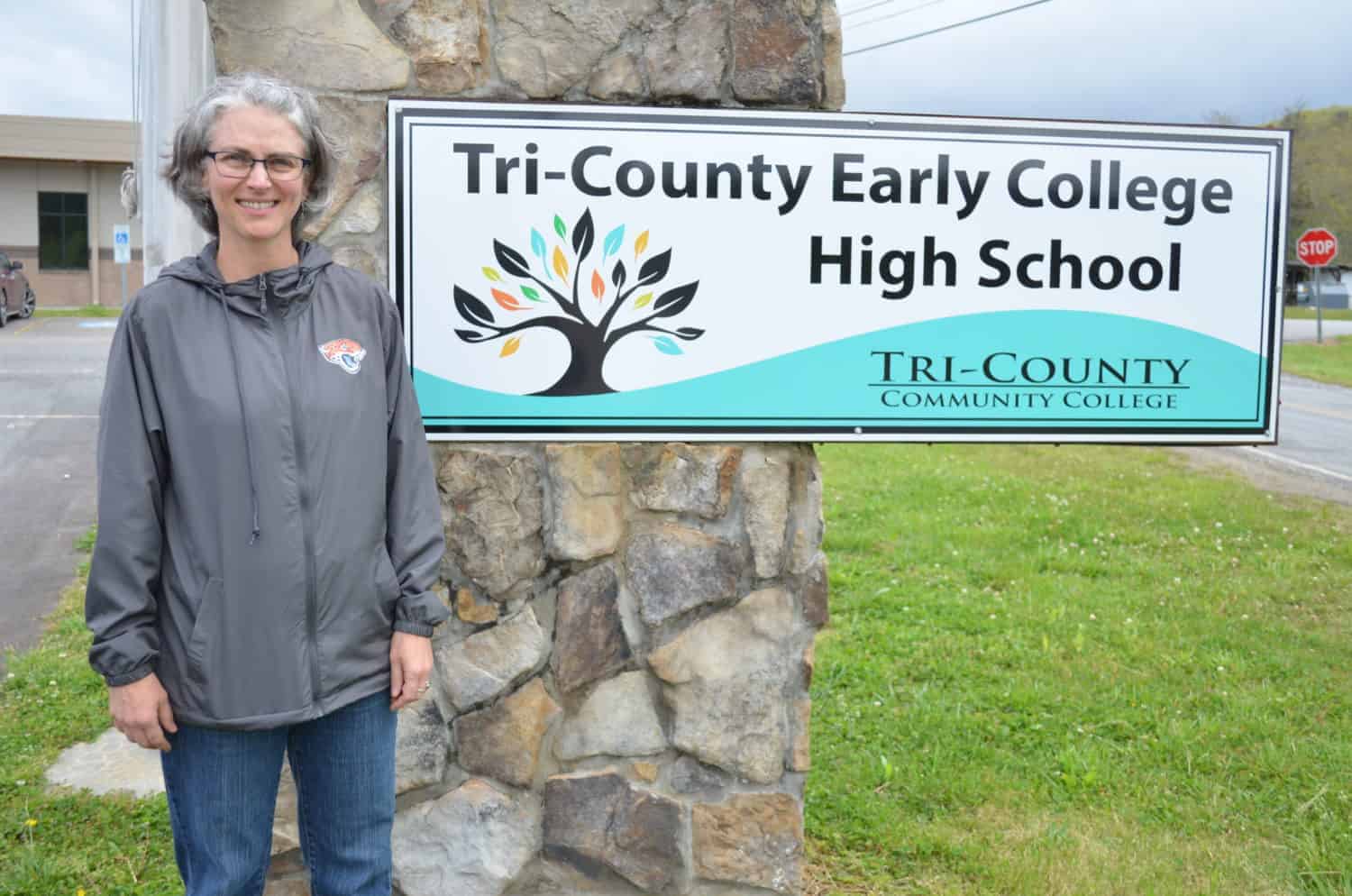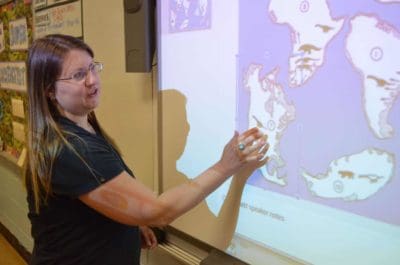Chris Crayton never wanted to be a teacher. She started out as a pre-med student at Bradley University in Illinois, but it wasn’t her passion; it was just what other people thought she should do.
“Because I was a good science student, that’s just what I was told,” she said.
In her coursework, she discovered there was a whole other world of sciences out there — subjects like biology and ecology — so when she went on to graduate school at the University of Oklahoma, she was on track to get a PhD in biology. But by the time she had finished getting her master’s degree, she knew she needed to try something different.
“Through the process of all that and writing my thesis, I realized I did not want to go on for a PhD,” she said.
But as a graduate student, she had the opportunity to teach, and that gave her the idea to do something that she thought she really might enjoy.
“I thought well, I really like teaching, so I’ll go back and become a high school science teacher,” she said.
She did become a teacher, but not quite in the way she expected.
Her first job was teaching high school math. She discovered that she liked it and was good at it. She has been teaching full-time now for almost a decade, and currently teaches Math 1, 2 and 3 at Tri-County Early College High School in Cherokee County. She has been at the Early College for only a year. Before that, she was a middle school teacher at the The Learning Center, a Cherokee County K-8 charter school.
She taught there for about eight years, instructing students in both math and science, but mostly math. She finally switched over to the early college for many reasons, including the bruising that comes from multiple years teaching middle school.
“I love middle school students, but after doing that for a number of years, they were kind of wearing me down,” she said.
She was quick to say that she loved middles schools students, however.
“They’re still kids,” she said. “High school kids, they’ve got to be too cool.”
The middle schoolers, while children in appearance, were also sophisticated enough developmentally, that Crayton could teach them a lot of higher subjects.
Crayton has three children of her own, and as she taught at The Learning Center, they were making their way through that school. When she finally made the move, her oldest was in high school at the early college.
“I’m not intentionally following my children,” she said, though she did mention that being at the same school as them was part of the reason for where she taught before and where she teaches now.
But more importantly, she said that the style of teaching at the early college was more fitting with how she likes to instruct.
“The main pull was sort of my trajectory as a teacher,” she said. “My path was aligning more and more with the style of teaching that was here.”


The education at the early college is more hands-on, with teachers asking students to not just give the right answer but also explain how and why they arrived at it. It is competency based, with students able to move ahead as they master topics.
“There is a big learning curve for kids because they’re trained up in school on doing what they’re told,” she said.
For much of their learning careers, students are told to sit still, be quiet, fill out worksheets, listen to the teacher, and provide the right answers. Generally, they are taught not think too much for themselves. At Tri-County Early College High School, that way of teaching is not encouraged.
“Getting them to really take ownership, to explain to me how they knew what they knew, not just filling out a worksheet, it’s a big hurdle for them getting comfortable with that style of learning,” Crayton said.
And the style of teaching at the early college is more interdisciplinary, something she was striving for at The Learning Center.
There she would have the same students for big blocks of time in math and science classes that took place back to back. She could use science concepts in math and math concepts in science, showing the students how they all related to one another. But that was the exception. At the early college, it is the rule, only now it is interdisciplinary not just between subjects but between teachers as well.
“You’re learning how to tan a deer hide. How can you use math to do that better?” she said by way of explaining how different subjects can meld together.
At Tri-County Early College, Crayton has found her groove. And all these years later, she still has not put that biology degree to too much use — she has never taught high school biology. But she doesn’t seem to mind. She has too many students to teach.
Note: Chris Crayton was nominated by fellow educator Ben Owens.



